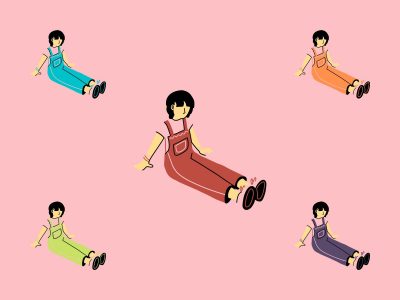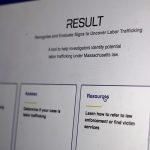While experiences with the COVID-19 pandemic vary from person-to-person, we have all grappled with its major, sudden disruption of normalcy and everyday life.
To what extent did these changes occur internally? Are we fundamentally different people than who we were at the start of 2020? Would our 2019 selves greet our current selves with familiarity, confusion or perhaps both?
Psychological research suggests that personality is relatively stable during adulthood, save for critical life events.

And, the COVID-19 pandemic could very well be a critical life event for everyone.
Adapting to this new normal may have resulted in the formation of new habits, which may fuse into our personalities.
This pandemic caused a lot of negative emotions as a result of the financial, psychological and health-related traumas.
Such traumas can shape our personalities by inviting irritability, anxiety and feelings of social withdrawal. In the context of the “Big-Five” personality trait model, those who are unemployed may display lower conscientiousness, shown through an individual’s responsibility and self-discipline.
Sickness corresponds with higher conscientiousness and neuroticism, which refers to our inclination toward anxiety and depression, but decreased levels of extraversion or sociability. Because these traumas are based on events such as illness or job loss, it is debatable whether they will leave lasting impacts on our personalities.
Those who were infected by the virus could also experience mental consequences in addition to physical symptoms: depression, anxiety, cognitive impairment and mood disorders.
Personally, staying at home for months activated my introverted and reflective side. I was getting used to enjoying my own company and rethinking everything I knew about myself and the world. Coming to campus last Fall, I recall becoming socially drained quickly.
Sometimes, I could not help but feel grateful that the public health restrictions made the freshman Fall social scene a tad less overwhelming, and I was not alone in these changes.

On the other hand, others may have found social revival invigorating after long periods of isolation — a breath of fresh air.
Stay-at-home orders limited our interactions with most of our social circles, but also increased time spent with others at home. These evolving relationships probably shaped our personality changes.
Experts suggest the lockdown incited “The Michelangelo Effect,” which is a phenomenon that describes how one can be “sculpted” into their ideal self with the support of a romantic partner.
This effect materializes in multiple ways. People with strong relationships basked in this effect as they helped each other grow into their dream selves with limited external judgment. This effect works adversely for those with weaker relationships.
Even people not in relationships were affected by this phenomenon, which also suggests that major life events can mold personalities. The pandemic abruptly halted normal activities, giving people the much-needed space and solitude to look inward and reflect on their values, aspirations and lives.
This bout of reflection can help individuals receive clarity about their relationships and identity. Increased self-awareness can seep into our habits, values, motivations and relationships, which are all factors that comprise our personality.
It is difficult to draw general conclusions about pandemic-induced personality changes because it is highly personal, and these evolutions are occurring as we speak.
What is the durability of these changes in adaptive human nature? Only time will tell.
It is important we acknowledge our internal personality changes as we navigate this rapidly moving world. This is something that psychological phenomena or extensive longitudinal research won’t tell us — it comes from ourselves.




